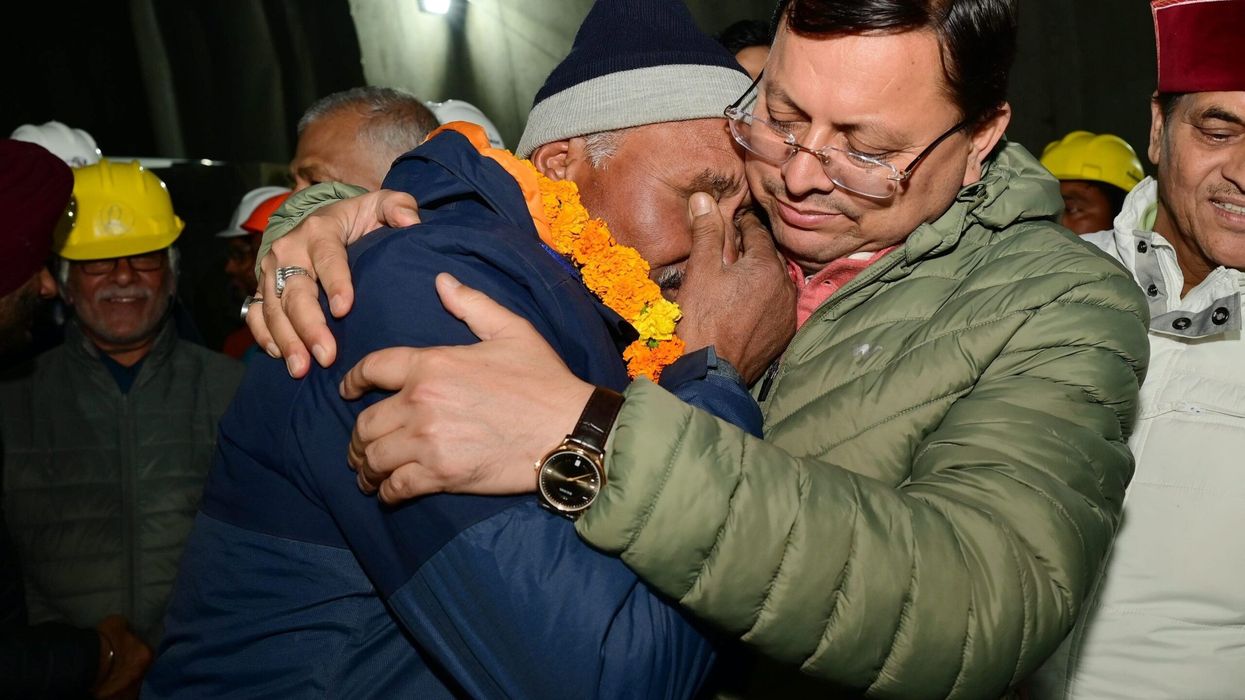The Uttarakhand chief minister Pushkar Singh Dhami on Wednesday (29), met with the workers rescued from the Silkyara tunnel and presented Rs 1 lakh, equivalent to around £ 950 to each of the workers.
He visited the rescued workers at a hospital in Chinyalisaur, where they are under medical observation. Dhami also spoke to their family members waiting outside the hospital who thanked him for safely evacuating the trapped workers after almost 17 days.
In the hospital, Dhami went from bed to bed speaking to each one of the rescued workers and handing over cheques to them.
The chief minister also announced Rs 50,000 reward, equivalent to around £500 for each of the rescue workers who went inside the evacuation passage and helped the trapped labourers come out of the tunnel.
"I am no less happy about their (workers) evacuation than their families" the Uttarakhand chief minister said.
Dhami also said the workers were like his family. "After all they work for us...for the country."
He thanked the local deity Baba Baukhnag, the multiple agencies involved in the huge operation that lasted 17 days, national and international experts and prime minister Narendra Modi for his constant support and guidance for the successful completion of the challenging task.
"I have faced several challenges during my tenures as chief minister but this one was the toughest," he said.
Talking about the various hitches and hurdles that hampered the rescue efforts, he said the prime minister's daily monitoring and support in providing all help needed in terms of the big machines gave him great strength.
Praising the trapped workers for showing exemplary patience, Dhami said assurance from them that they were alright and ready to wait while the rescue agencies did their work also strengthened his resolve to have them evacuated safely.
Dhami reiterated the state government has decided to review all tunnel projects.
"There are several such projects underway in the state. We have decided to have them reviewed. We need development but there should be a balance between ecology and economy," the chief minister said.
The rescue workers on Tuesday (28) evening pulled out all the 41 workers who got trapped after a portion of the Silkyara tunnel, part of the Centre's ambitious Char Dham project, collapsed due to a landslide on November 12.
They will likely be taken to the hospital, AIIMS-Rishikesh before being allowed to go back to their homes.
(PTI)




